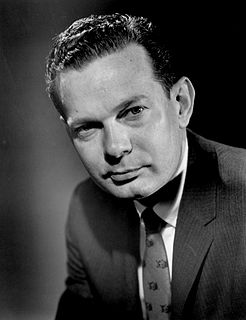A Quote by Federico Garcia Lorca
I was lucky enough to see with my own eyes the recent stock-market crash, where they lost several million dollars, a rabble of dead money that went sliding off into the sea.
Related Quotes
I was lucky enough to see with my own eyes the recent stock-market crash, where they lost several million dollars, a rabble of dead money that went sliding off into the sea. Never as then, amid suicides, hysteria, and groups of fainting people, have I felt the sensation of real death, death without hope, death that is nothing but rottenness, for the spectacle was terrifying but devoid of greatness... I felt something like a divine urge to bombard that whole canyon of shadow, where ambulances collected suicides whose hands were full of rings.
Nobody in TV makes as much money as Robert Redford, who likes to make movies for several million dollars only on the condition that they contain some sort of social message. I cannot take very seriously a social message delivered by an actor who is paid nine million dollars to deliver it, and who charges you five dollars to see it.
Many people say, "When I get a million dollars, then I'll be happy because I'll have security," but that's not necessarily so. Most people who acquire a million dollars want another and then another. Or they could be like a good friend of mine who made and lost every dime of a million dollars. It didn't bother him a bit. He wasn't excited about it, but he explained to me, "Zig, I still know everything necessary to make another million dollars, and I've learned what to do not to lost it. I'll simply go back to work and earn it again.
In my opinion, the greatest misconception about the market is the idea that if you buy and hold stocks for long periods of time, you'll always make money. Let me give you some specific examples. Anyone who bought the stock market at any time between the 1896 low and the 1932 low would have lost money. In other words, there's a 36 year period in which a buy-and-hold strategy would have lost money. As a more modern example, anyone who bought the market at any time between the 1962 low and the 1974 low would have lost money.
The underlying strategy of the Fed is to tell people, "Do you want your money to lose value in the bank, or do you want to put it in the stock market?" They're trying to push money into the stock market, into hedge funds, to temporarily bid up prices. Then, all of a sudden, the Fed can raise interest rates, let the stock market prices collapse and the people will lose even more in the stock market than they would have by the negative interest rates in the bank. So it's a pro-Wall Street financial engineering gimmick.





































